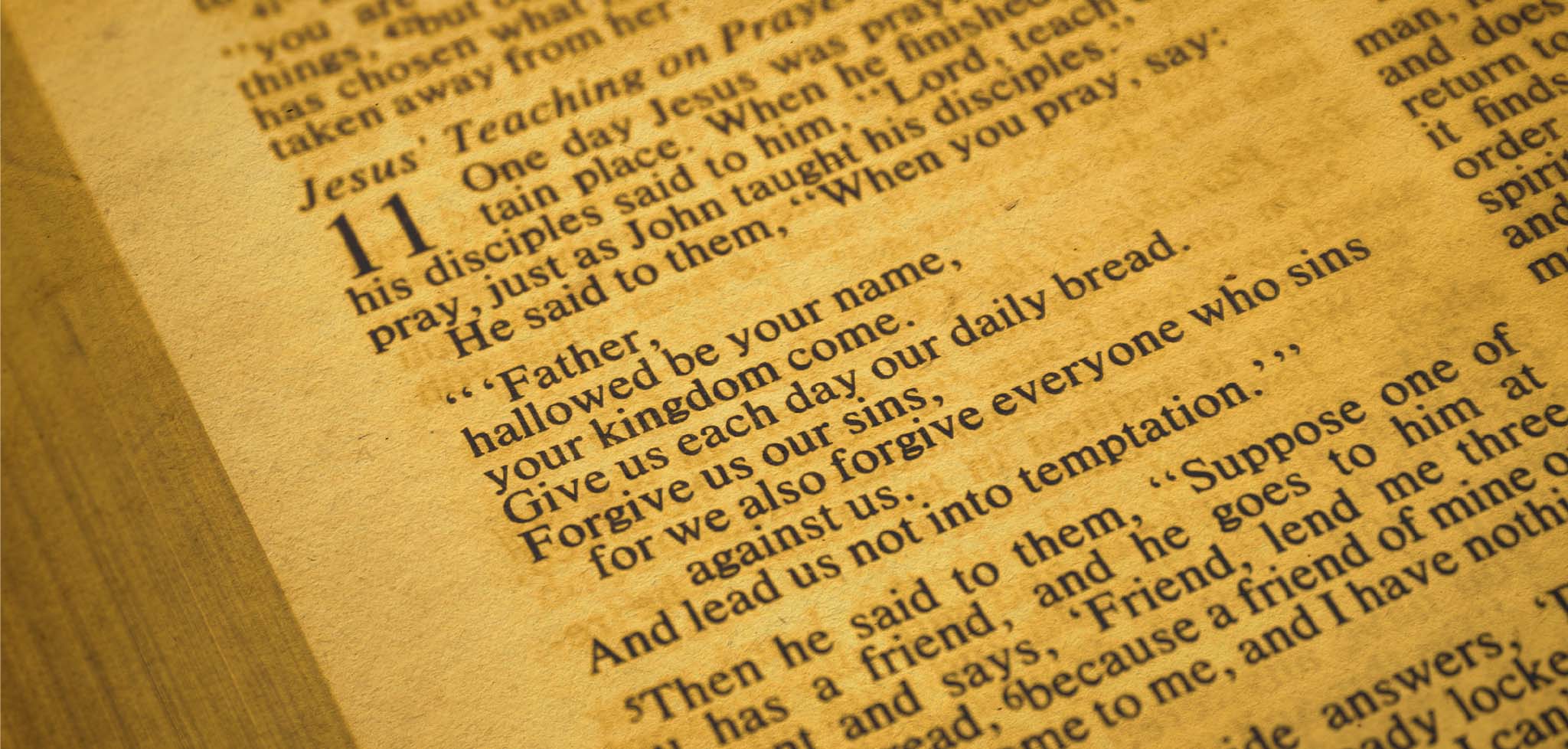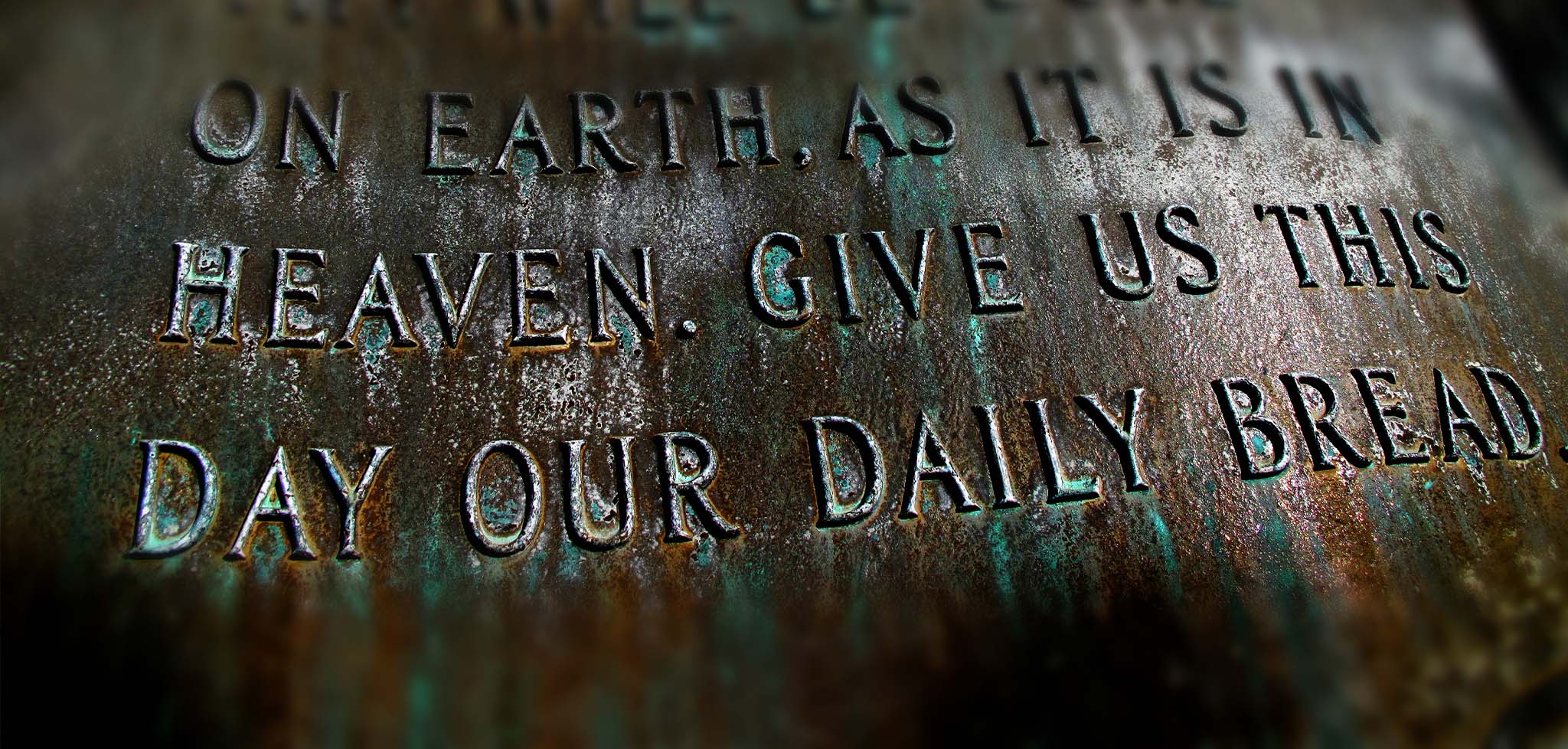Our children went to summer camps along the Guadalupe River. Many friends in Austin sent their kids to camps there. It has been a part of growing up for many children. The recent flooding and terrible loss of life, including so many children, has brought many to grieve.
It led me to think about how the Lord’s prayer functions not simply as a structure for prayer, but also in particular moments. Can it help us ask the right questions, offer us comfort and a way forward? Can it help us through the valley of the shadow of death?
Our Father, which art in Heaven,
Hallowed be Thy Name.
Thy Kingdom come.
Thy Will be done, on earth as it is in Heaven.
Give us this day our daily bread,
And forgive us our debts as we forgive our debtors,
And lead us not into temptation,
But deliver us from evil. For thine is the Kingdom and the Power and the Glory forever.
The language of the prayer is formal,
the words carefully chosen and evocative of Biblical stories and themes. The seven petitions can also be described in terms of seven subjects, perspective, hope, trust, life, forgiveness, self-awareness, and gratitude. It is a comprehensive prayer, an outline for all of life. But it also can speak to us in particular circumstances when we pray for:
Perspective – In grief, God can seem distant, perhaps irrelevant. And yet, there is also an awareness even in heartache that grief can overcome us, but it cannot sustain us. The Lord’s prayer begins by pointing us to the holiness of God, calling us to believe that there is more than our brokenness, that something good and unchanging endures which can help us get to a better place.
Hope – Part of the loss in a tragedy is the loss of hope. It is especially difficult in the loss of a child. There are so many hopes attached to the precious life of a child, hopes for the future and chapters still to come. Joys and milestones yet to be celebrated and simply the gift of daily life experienced together. A lot of dreams die with a child. The Lord’s prayer calls us to a hope that endures beyond all these things, a hope that includes us and that promises joy still to come, a hope that cannot be diminished.
Trust – In our best moments or when we aren’t sure what to do, we may say “Thy will be done.” Jesus, however, prayed these words in agony. It is not the contradiction of what we want. It is an expression of trust that the story we live in is bigger than we can see and that God is trustworthy. God cares for us deeply, even when we feel most lost. Can we trust God to unite us again with those we love?
Life, what we want and need – Alcoholics Anonymous employs the slogan “One day at a time.” It is about the importance of not pushing ourselves too hard by creating punishing expectations that can’t be fulfilled with short horizons. This petition invites us to pray for the day and what we need to get through it, remembering that the God who brought mannah to the Israelites when they were hungry, will provide for us.
Forgiveness – Sometimes we blame others. Sometimes we blame ourselves. There is always some sort of accounting and anger is a powerful emotion. But anger doesn’t heal. While we can commit ourselves to helping ensure better safeguards against tragic losses, the prayer calls us specifically to let go of things that fester like poison. Forgiveness and generosity are dimensions of love.
Self-awareness – Perhaps it is this petition that can make one feel betrayed by God. Jesus felt abandoned. But we still have choices in front of us. We can recognize the things that, in fact, we can do.
Deliverance and Gratitude – The Lord’s prayer begins with holiness and ends with deliverance from evil. Sometimes we are acutely aware of our need for deliverance. The word itself is an echo of language used in the Biblical story of Moses and the children of Israel who were delivered from Pharoah’s army. The New Testament declaration goes further. It is that the deliverance accomplished by God’s love manifest in the cross and resurrection was and is deliverance from the power of evil to control our life and our destiny. This deliverance, witnessed by the disciples, triggers the response of gratitude.
For those who grieve,
deliverance and gratitude may describe a path and a destination. In fact, the path of gratitude leads through all the petitions of the prayer. Gratitude for the goodness of God, for the hope set before us, for a God who cares about us, for the invitation to share our burdens and trust in God’s provision, for a path to healing, for a God who knows our burdens, and for a God who offers us a love that can heal us and a hope that does not disappoint.


